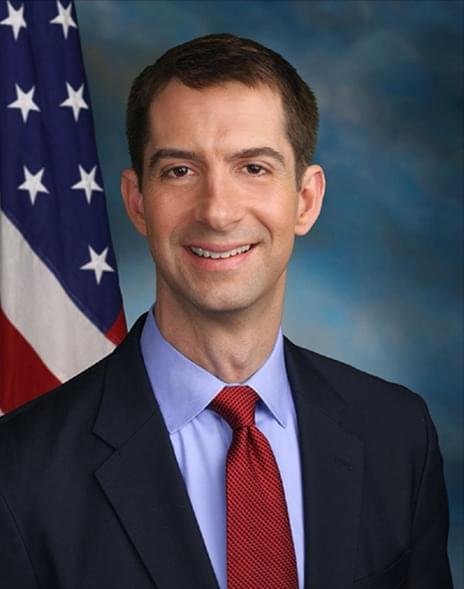NORTH LITTLE ROCK, Ark. — On Aug. 2, 124 participants from 36 teams put their food and nutrition knowledge — and cooking skills — to the test at the Arkansas 4-H Food Challenge.
The competition, part of Arkansas 4-H’s Healthy Living Project, was held at the Culinary Arts and Hospitality Management Institute at UA Pulaski Technical College in North Little Rock, Arkansas. Each team had 40 minutes to prep and cook their dish, with the choice to compete in fruits and vegetables, dairy, protein or grains. Teams had to use ingredients available at dollar stores, including frozen peas and canned tomatoes, as well as rice and smoked sausage. Each team also had to incorporate a mystery ingredient.
Teams then had five minutes to present their dish to judges and explain the nutritional value, total cost of the ingredients and the food safety measures taken in preparing it. The judging panel included Cooperative Extension Service family and consumer science agents and specialists.
JeAlberne Smith, extension 4-H program technician for the University of Arkansas System Division of Agriculture and coordinator of the 4-H Food Challenge, said the competition is an important opportunity for youth to practice their cooking skills and work together as a team.
“The Arkansas 4-H Food Challenge gives our members a chance to apply their food and nutrition knowledge in a fun, exciting contest that also teaches them to think quickly on their feet,” Smith said. “I’m proud of this year’s teams for getting creative with their dishes, and I’m also grateful to all the 4-H agents and parent leaders for their hard-working helping these teams get ready for the competition.”
Smith said that all food not used during the competition was donated to The Shack, a non-profit ministry in Little Rock that provides free meals, hygiene facilities and laundry services for people in need.
BOUND FOR NATIONALS — The Cooking Herd from White County won First Place Overall in the Senior Division in their first year competing at the Arkansas 4-H Food Challenge, held Aug. 2 at the Culinary Arts and Hospitality Management Institute at UA Pulaski Technical College in North Little Rock, Arkansas. (Division of Agriculture photo.)
The winners were:
Senior Division
First place: The Cooking Herd from White County — Caitlin Cooper, Jack Pruitt, Lynnlee Morrison, Madison White
Second place: The Rolling Scones from Grant County — Lauren Fleming, Kortni Nelson, Aubrey Ottens
Third place: Hillbilly Cooks from Faulkner County — Morgan Caro, Kacie Clark, Chloe Parish, Leah Smith
Junior Division
First place: The Saucy Bosses from Union County — Makena Saffold, Sadie Saffold, Sophie Wheeler
Second place: Spicy Slicers from Drew County — Audrey Clayton, Alvia Daniels, Jesika Henson, DJ Hewing
Third place: The Cooking Clovers from Yell County — Kaitlyn Munroe, Kourtney Munroe, Skylen Reddin, Colt Stokes
First-time competitors, first-time winners
Nancy Evans, White County extension 4-H program assistant, said The Cooking Herd team had looked forward to competing in the 4-H Food Challenge for the first time.
“We prepared with practices once a week, and they also got together and practiced at home,” Evans said. “They were so excited, and I was so excited for them to go and compete. I was impressed with all the knowledge they developed for this contest.”
Evans said that through studying the USDA MyPlate nutrition lessons and trying their hand at preparing recipes, all the White County teams gained skills they can use for the rest of their lives — a core value of the 4-H program.
“These are important skills for them to know,” Evans said. “They can use these in their personal lives and with their families in the future. That’s why 4-H is so good for them — so they can go and share their skills, and help other people learn to prepare healthy meals.”
The Cooking Herd team will next head to the National 4-H Food Challenge held at the Texas State Fair in October. Evans said the team’s performance at the state contest is already a big win for the county.
“Before we left for the competition, they were ready,” Evans said. “When they came out from the judging portion, they were so confident that they did well. It was unbelievable to get this trophy because before we started preparing for the competition, I mentioned to them that I wanted to take this trophy home. And they said, ‘We can do it!’”
4-H is a youth development program operated by the Cooperative Extension Service, part of the University of Arkansas System Division of Agriculture. The program teaches participants life skills through the “learn by doing” model. Program participants gain knowledge through non-formal, science-based, experiential education activities.
To learn more about Arkansas 4-H and its programs, visit the Arkansas 4-H website.
To learn about extension programs in Arkansas, contact your local Cooperative Extension Service agent or visit www.uaex.uada.edu. Follow us on X and Instagram at @AR_Extension. To learn more about Division of Agriculture research, visit the Arkansas Agricultural Experiment Station website: https://aaes.uada.edu. Follow on X at @ArkAgResearch. To learn more about the Division of Agriculture, visit https://uada.edu/. Follow us on X at @AgInArk.
























